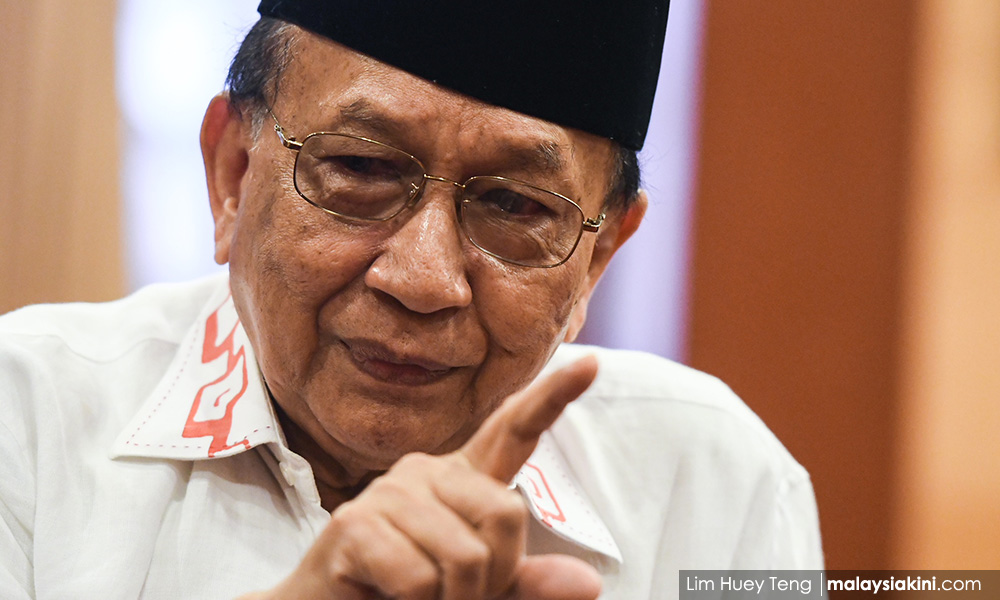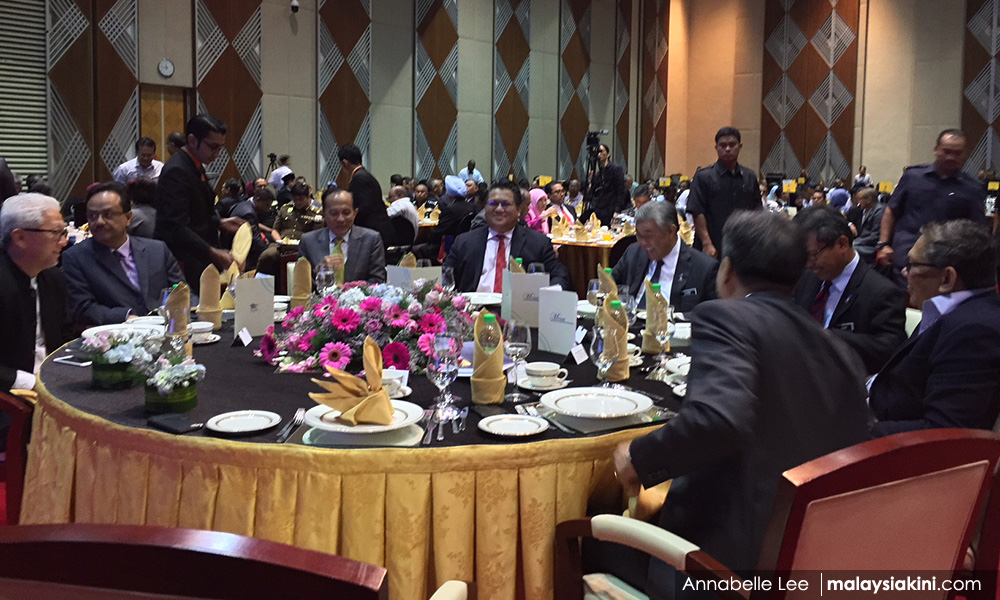
Former information minister Rais Yatim has called on Putrajaya not to be too hasty in its efforts to table a new law against fake news.
In an interview with Malaysiakini, Rais said the government has yet to even define what would be considered as "fake news" but is now expected to table the law in the Dewan Rakyat in this current session.
In general, the senior adviser to the government said, fake news could be defined as news that has no basis or is untrue, but is shared to achieve a certain agenda.
"This (exact) definition has not been finalised (by the government) but they are now drafting a new law," said Rais, who is International Islamic University Malaysia president, when met at his office on the campus in Gombak.
As an example, he questioned whether an inaccurate news report would also fall under the ambit of the new law.
“If we say (report) that there were 1,500 people who attended a gathering, but another person (report) said there were 5,000 people who came, can we use the term ‘fake news’? Or is that only considered as inaccurate reporting?
“What is the difference between inaccurate reporting and fake news?” he asked in pointing out that one of the reports would be “fake” or untrue.
“Would actions be taken against the person (writer) under the new law? That is just one aspect which must be considered,” explained Rais who is now a special adviser to the government with minister status.
On the same note, he said the sources of such inaccurate reports or fake news could also be traced back to government agencies, including the Information Department, RTM and the Special Affairs Department (Jasa)

“This must be taken into consideration. Don’t just think that fake news only comes from the opposition.
“It could also come from the government, because of its sheer size,” he cautioned.
In terms of intention, Rais said there could be parties who claim that a report should be labelled as “fake news” to “embarrass Minister A”.
“But can the (fake news) law be enforced if what was done by Minister A had indeed raised speculations and doubts? Can we accept that definition of ‘fake news’?”
In arguing against the need for a new law against fake news, Rais also said there were many provisions under the existing laws - the Evidence Act 1950, Printing Presses and Publications Act (PPPA) 1984, Communications and Multimedia Act 1998 and the Penal Code, among others - which could be enforced for similar offences.
Logical to amend press laws
Asked for comments on Deputy Prime Minister Ahmad Zahid Hamidi’s reported intention for the government to “revisit” provisions of the PPPA after the 14th general election, Rais described it as a “logical view” but urged the Home Ministry officers to pinpoint the exact areas that required further amendments.
“Previously, the government relaxed regulations on the need to apply for an annual publishing permit. So now we must determine on which further provisions need to be relaxed,” he said.

Zahid, who is also the home minister, made the promiseduring a recent luncheon meeting in Putrajaya with top editors from various mainstream media outlets.
In response to Zahid, several local media groups said that while they welcomed the government’s reported promise, they are of the view that the PPPA should be repealed.
Rais also voiced his support to calls from local media groups on the need to move towards self-regulation of the industry through forming an independent ombudsman or a media council.
But at the same time, he also said that with laws such as the PPPA still in force, the ideal solution would be to have a two-tier system, starting with an independent media council.
“It (the matters raised) could not just end internally with the council (because of existing laws). Therefore, Malaysia should consider establishing a two-tier system.
“The first tier is the independent media council, a high integrity body comprising media practitioners and journalists,” Rais said in acknowledging that Indonesia already has its own media council to deal with complaints against them.
“When matters cannot be fully resolved at that stage, then we rely on other existing laws,” he said, adding that the proposal was also in line with Prime Minister Najib Abdul Razak's aim for Malaysia to become a high-income developed nation.
De facto law minister Azalina Othman Said announced in January that Putrajaya has formed a special committee to formulate laws to tackle fake news.
The committee, endorsed by Najib, included representatives from the police, the Attorney-General's Chambers and the Communications and Multimedia Ministry.
In February, Azalina said that more stakeholders would be called upon to discuss the issue of fake social media accounts created to spread false and inappropriate content that could adversely affect the country’s social and economic balance, as well as national security.
Putrajaya has repeatedly defended its proposed law against claims that the new legislation would be abused to silence news critical of the government, including the 1MDB scandal. -Mkini



No comments:
Post a Comment
Note: Only a member of this blog may post a comment.